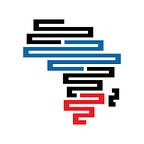Four lessons for preparing a remote training
How to ensure that a mentorship-based, interactive training session can translate successfully into a digital classroom
The task
Late last year, Code for Africa (CfA) partnered with Deutsche Welle Akademie (DWA) to train a cohort of senior Kenyan journalists and media professionals as media viability consultants (MVCs). The goal was to provide the MVCs with the latest insights into the business of news, preparing them to manage teams, launch new revenue initiatives, and to share knowledge with other journalists. The course would cover a period of months, and support participants far into the future. Course materials were designed as tools for the MVCs themselves to use, and the training activities involved tools and ideas applicable to the real business problems in their newsrooms.
The problem
The challenge of Covid-19 meant that the programme and all of its elements needed to go remote.
This was problematic, because this training was predicated on a close mentorship relationship — we needed to take people who were already experts in their fields, and guarantee that they came out with advanced analytical skills and a new perspective on issues like newsroom sustainability, digital business models and information security.
Read more about this in Part 2: Six skills you need to run a modern, sustainable newsroom
Our team had to design a fully online learning experience with lectures, course materials and practical business development exercises. Moreover, we had to be able to assess remotely that each member of the group could put it into practice in an actual business environment.
The solution
In the end, the course consisted of five modules delivered completely online. CfA led the development of the section of the course that focused on Digital Trends and Innovation in the Newsroom. Other DWA partners developed complimentary modules on human resource management, financial management and audience research, with each partner designing their own teaching methodology.
CfA’s training was delivered using free online tools: Google Meet, Google Docs, Google Drive and Trello, and communications and mentoring was managed through our Slack workspace.
Here are four of the major lessons we learned.
The lessons
- Remote learning makes it harder to measure learner engagement
The key to good training is building engagement. In a physical training, participants could easily signal visually that they required assistance. In a remote training, this remained tricky to navigate as it required interrupting the facilitator or having a second person run the question and comments section.
We managed this with regular check-ins and question sessions.
2. Prepare learners for every technical requirement
Don’t assume that all participants are familiar with the tools and technology used to train. Include an early session to run everyone through the basics and share user guides for tools ahead of the training and during for users to check.
3. Plan out every step of every activity
For this course, the activities were expected to be group projects. In a workshop, this would be as simple as pairing teams off into different corners of the room.
For online training, the planning required more steps. Asking questions such as how teams would present their findings, whether and how they will share screens, and making sure internet connectivity and audio is reliable enough.
Deciding on breakout room etiquette also required extra considerations. Would there be a facilitator assigned to each room, or would they need to move between a few of these? Would each team access the same room link each time, and how would these be tracked?
Preparing for various scenarios is essential and the first day of activities was a learning curve for all eventualities.
4. Use the training to build your community
Code for Africa uses training and skillshare as an opportunity to grow communities and networks among both the participants and the organisation.
All participants are encouraged to join our Slack community to benefit from the range of experts, collaborations and information shared on public channels, and are considered for future partnerships on other projects.
—
If you want to learn more about how we train the business of news, data journalism or any other skills area, send us an email at hello@codeforafrica.org.
For access to our MOOCs, which provide digital skills for journalists and civil society, visit academy.AFRICA
Want to hear more from Code for Africa? Subscribe to our Medium page, the CfA newsletter, or follow us on LinkedIn and Twitter
____________________________
DW Akademie is Deutsche Welle’s center for international media development. As a strategic partner of the German Ministry of Economic Cooperation and Development, DW Akademie carries out media development projects that strengthen the human right to freedom of opinion and promote free access to information.
Code for Africa (CfA) is the continent’s largest network of civic technology and data journalism labs, with teams in 12 countries. CfA builds digital democracy solutions that give citizens unfettered access to actionable information that empowers them to make informed decisions, and that strengthens civic engagement for improved public governance and accountability. This includes building infrastructure like the continent’s largest open data portals at openAFRICA and sourceAFRICA, as well as incubating initiatives as diverse as the africanDRONE network, the PesaCheck fact-checking initiative and the sensors.AFRICA air quality sensor network.
CfA also manages that African Network of Centres for Investigative Reporting (ANCIR), which gives the continent’s best muckraking newsrooms the best possible forensic forensic data tools, digital security and whistleblower encryption to help improve their ability to tackle crooked politicians, organised crime and predatory big business. CfA also runs one of Africa’s largest skills development initiatives for digital journalists, and seed funds cross-border collaboration.
